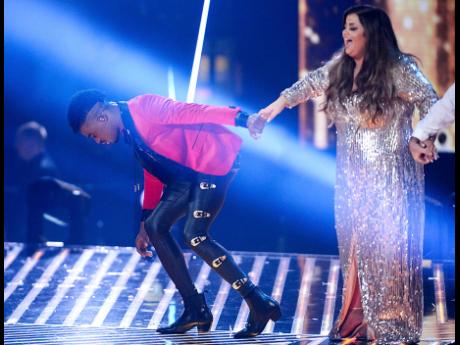Finding the next Dalton Harris
Music insiders are declaring that Jamaica is filled with extraordinary talent like that of Dalton Harris. But they also point to the deficiencies that prevent those entertainers from rising to the fore.
Harris became the first Jamaican to win the UK's 'The X Factor' talent competition this weekend, earning a recording contract with the Sony-owned Syco Music. While Harris rose to prominence in 2010 after winning the 'Digicel Rising Stars' competition, he suffered a stagnant career locally, despite releasing three albums. Respected music producer Gussie Clarke, said that Jamaican radio "should be ashamed of themselves" for not playing his previously recorded music.
"Dalton won Digicel Rising Stars and released records, which were not played on the radio. He had to get a job on a ship and eventually enter this competition," Clarke told The Gleaner. "The talent is here, and has been here, it's just that Jamaican media is just not as friendly in supporting the talent, which is an indictment on them if that is how the talent will be exposed. If radio doesn't do it, someone abroad will."
NO AIRPLAY FOR NEW TALENT
Clarke also pointed to what he described as a "lack of structure" at radio stations, which prevents new talent from receiving airplay.
"It's an ongoing thing. First-time radio had a programme director, but today, too many DJs play what they want to play, so a lot of talent don't get the exposure," he added. "Dalton Harris had the talent all along and he was not being played. Tessanne Chin is another example. Ever since she won 'The Voice', you really don't hear her songs being played on the radio anymore. We are really not getting fair exposure for the talent that is here."
In addition to these claims, Clarke pointed to a disparity among musical genres on local radio that stifles Jamaican talent. "Seventy per cent of music played on the radio is from international artistes - the radio is neither accommodating nor receptive to our people's music. Jamaica is not short of good artistes or producers. Dalton was ideal for the Jamaican market, but he also had talent ideal beyond Jamaica. He went to the correct state and platform which is 'X Factor', and they look for exceptional talent like Dalton's, and have a mechanism in place where they highlight that talent, push it to the public, and the public does the rest. Jamaican radio needs to find a mechanism on how to properly recognise talent."
In assessing more ways in which Jamaica can better develop and further its talent pool, Clarke sees no need for more talent shows.
"Shows are not going to develop talent they need to bring talent to the ears of who can develop it. Every record producer is looking for a Dalton Harris. Donovan Germain was lucky to have him, but he wasn't getting the support from the media," he said. "I don't see the need for the initiative of the private sector to develop another show, we already have 'Digicel Rising Stars' and there was 'Magnum King and Queens'."
Digicel Rising Stars
Founder of the now defunct 'Magnum Kings and Queens of Dancehall' competition Mark Kenny, echoes this sentiment.
"I think Digicel Rising Stars is the best platform for singers in Jamaica, I don't think there is anything the Government or private sector can do to help produce more talent like a Dalton Harris," he told The Gleaner. "All the talent shows and programmes like 'Intense', 'ER', 'Magnum Kings and Queens' ... they are doing more than their fair share of allowing access for aspiring artistes to expose themselves."
Kenny suggests that more artiste managers are needed to mould and guide talent to international stardom.
"What is missing in Jamaica is artiste managers for singers," he said. "Managers will be able to take the artiste to another level, and that is hard, it's not a simple task. However, it comes down to the individual and the artiste manager to find the platforms and media that can help in that venture. Social media is huge now - you have platforms like Instagram Live which is an easier way for people to break on to the scene."


